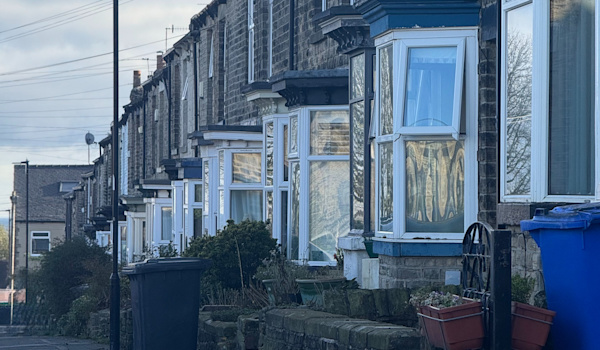
Round up of housing law and news: February 2024

Legislation
Leasehold and Freehold Reform Bill
The Leasehold and Freehold Reform Bill had its third reading in the House of Commons on 27 February and its first reading in the House of Lords on 28 February.
The bill aims to reform leasehold ownership. Amendments added to the bill include a new redress scheme and measures to ensure that relevant sales information is provided to leaseholders and freeholders in a timely manner.
Leasehold and Freehold Reform Bill - Parliamentary Bills - UK Parliament
Case law
Joint tenant moved out but did not surrender tenancy, later succeeded under survivorship
The Court of Appeal considered whether a joint tenancy was surrendered and a new sole tenancy re-granted after one joint tenant moved out. When the remaining tenant died, the landlord served a notice to quit on the absent tenant. The court held the landlord was correct that the absent joint tenant had succeeded under survivorship. The tenancy had not been unequivocally surrendered, and the joint tenancy had continued. This prevented the right to succeed of another family member who would have otherwise been entitled.
Rahimi v City of Westminster Council [2024] EWCA Civ 73 (05 February 2024) (bailii.org)
Proportionality of possession proceedings
The High Court considered whether a landlord’s actions when taking possession proceedings were proportionate under the Equality Act 2010. The court found that proceedings were started in part due to antisocial behaviour complaints about the tenant’s son, who had a disability. The possession claim began in 2019 and was delayed by the Covid-19 pandemic. When the hearing took place in January 2022, the landlord had not provided any evidence of ASB within the last two years. The High Court found that there was no evidence to show eviction was still proportionate at the time of the trial.
Local authority policy requiring medical evidence on need for pets not discriminatory
The High Court considered whether a policy requiring homeless applicants to provide medical evidence of a need to be housed with an animal discriminated against disabled people. The court held that the claimants had not provided evidence that they had been disadvantaged by the policy, and that the policy was lawful.
The court also considered a judicial review of the suitability of accommodation provided under section 193 Housing Act 1996. The court held that judicial review was not the appropriate route of challenge as the applicants had the right to an internal review and a County Court appeal.
Housing needs assessment while children in care
A homeless applicant challenged a local authority over the lack of a lawful housing needs assessment. The authority had not included the applicant’s three children in the housing needs assessment. The children were subject to interim care orders at the time. The authority argued they could assess who could be reasonably expected to reside with the applicant. The court found that the authority should have considered whether the applicant’s children might return to live with her.
Discretion in housing register applications
The claimant applied to join the housing register in 2017 with her partner. The account was set up in her partner’s name. After the relationship broke down, the applicant reapplied and asked the authority to backdate her application to 2017. The authority denied that its allocation policy allowed for discretion to backdate the application. The High Court found that the allocations scheme did allow discretion, and that the authority had not met its duty of candour and cooperation to the court. The authority had withheld guidelines which set out how officers could use discretion.
News and guidance
Ukraine Family Scheme closure
The Ukraine Family Scheme, which allowed Ukrainian nationals and their immediate family members to apply to join a family member living in the UK, closed for new applications on 19 February 2024.
The Ukraine Extension Scheme closes on 16 May 2024.
Ukraine Family Scheme Visa - GOV.UK
Migrant victims of domestic abuse concession
The destitution domestic violence (DDV) concession has now been renamed the migrant victims of domestic abuse concession. The rules on who can qualify have been amended to include a partner of a person with permission to enter or stay on a work and economic route or as a student or graduate.
Gov.uk: Victims of domestic violence: caseworker guidance - GOV.UK (www.gov.uk)
Code of Guidance: suitability of accommodation for children under two
The Homelessness Code of Guidance has been updated to confirm that accommodation is not suitable for a household with children under the age of two if there is not enough space for a cot for each child under that age. The Code also says that authorities should consider if a cot can be provided if a household does not have access to one.
Gov.uk: Homelessness code of guidance for local authorities - Guidance - GOV.UK (www.gov.uk)
Consultation on new regulatory standard for social housing staff
The government has launched a consultation on its proposal to introduce a new regulatory standard regarding the competence and conduct of social housing staff. The standard will introduce qualification requirements. The consultation will be open until 2 April 2024.
Gov.uk: New standards to improve service for all social housing tenants - GOV.UK (www.gov.uk)
Gov.uk: Competence and Conduct Standard for social housing: consultation - GOV.UK (www.gov.uk)
Housing Ombudsman and LGSCO launch aligned complaint handling codes
The Housing Ombudsman and the Local Government and Social Care Ombudsman have launched an aligned complaint handling code. The code will become statutory from 1 April 2024, meaning that landlords must follow the process for handling complaints.
Housing Ombudsman: Complaint Handling Code becomes statutory | Housing Ombudsman (housing-ombudsman.org.uk)
New Code: Complaint Handling Code 2024 - Housing Ombudsman (housing-ombudsman.org.uk)
LGA calls for reform to Right to Buy
The Local Government Association has called for reforms to the Right to Buy (RTB) scheme to prevent the ongoing net loss of social housing properties. The LGA proposes flexibility for councils to adapt the scheme locally and control for councils on how income from RTB is used on the development, delivery or acquisition of new homes.
Local Government Association: Right to Buy needs reform to avoid social housing stock losses | Local Government Association
Public Accounts Committee warns of increase in homelessness Ukrainians
A report published by the Public Accounts Committee (PAC) warns that more Ukrainians in the UK are likely to become homeless as sponsor arrangements break down. The report raises concerns about the accuracy of statistics on how many sponsorships have broken down and warns that this is affecting planning.
UK Parliament: Homes for Ukraine: Risk of homelessness in scheme likely to increase, PAC report warns - Committees - UK Parliament
Government proposes national register and planning requirements for short-term lets
Proposed reforms to short-term lets will introduce planning permission requirements and a mandatory national register. The reforms aim to assist local communities with high numbers of short-term lets to deal with housing shortages.
Gov.uk: Short-term lets rules to protect communities and keep homes available - GOV.UK (www.gov.uk)
Data and trends
More than 26,000 bailiff evictions since government pledged to abolish section 21
Government figures on possession proceedings show that:
26,311 households have been evicted by bailiffs since the government committed to abolish section 21 of the Housing Act 1988
9,457 households have been evicted by bailiffs in the past year, an increase by 49% since 2022
30,230 landlords started section 21 proceedings in 2023, an increase of 28% since 2022
Gov.uk: Mortgage and Landlord Possession statistics: October to December 2023 - GOV.UK (www.gov.uk)
Shelter analysis: More than 26,000 no-fault bailiff evictions since government pledge to scrap Section 21 - Shelter England
27% increase in rough sleeping since 2022
The government has released new statistics on rough sleeping. The figures are estimated based on a single night in autumn 2023 and show:
3,898 people were estimated to be sleeping rough, an increase of 27% since 2022, but down from its peak in 2017
6.8 people are estimated to be sleeping rough per 100,000
rough sleeping has increased in every region in England since 2022, with the largest increase in London
Gov.uk: Rough sleeping snapshot in England: autumn 2023 - GOV.UK (www.gov.uk)
252,000 new social housing lettings in 2022/23, down by 6% on 2021/22
New government statistics on social housing lettings show that in 2022/23:
there were 252,000 new social housing lettings, a decrease of 6% on the previous year
71% of new lettings were with private registered providers of social housing, and 29% were with local authorities
87% of lettings were for existing properties, while 13% were newly built properties
Gov.uk: Social housing lettings in England, tenancies: April 2022 to March 2023 - GOV.UK (www.gov.uk)
Research into the effectiveness of Housing First
Research by Homeless Link, in partnership with Expert Link, looked at the success of Housing First projects. The research found that within a year of projects starting:
over half of people found a reduction in their overall mental health needs
more than 25% of people found a reduction in their overall physical health needs
there was a 20% decrease in the use of A&E compared to the six months prior
Homeless Link: Research exploring holistic Housing First outcomes | Homeless Link
Updates from the Renters' Rights Act 2025
The monthly round up of legislation, cases, news and data from Housing Matters



